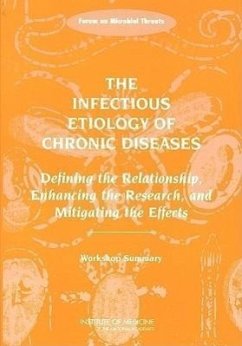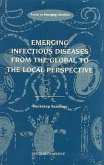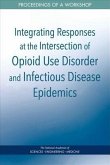In recent years, a number of chronic diseases have been linked, in some cases definitively, to an infectious etiology: peptic ulcer disease with Helicobacter pylori, cervical cancer with several human papillomaviruses, Lyme arthritis and neuroborreliosis with Borrelia burgdorferi, AIDS with the human immunodeficiency virus, liver cancer and cirrhosis with hepatitis B and C viruses, to name a few. The proven and suspected roles of microbes does not stop with physical ailments; infections are increasingly being examined as associated causes of or possible contributors to a variety of serious, chronic neuropsychiatric disorders and to developmental problems, especially in children. The Infectious Etiology of Chronic Diseases: Defining the Relationship, Enhancing the Research, and Mitigating the Effects, summarizes a two-day workshop held by the Institute of Medicine's Forum on Microbial Threats to address this rapidly evolving field. Participants explored factors driving infectious etiologies of chronic diseases of prominence, identified difficulties in linking infectious agents with chronic outcomes, and discussed broad-based strategies and research programs to advance the field.
Hinweis: Dieser Artikel kann nur an eine deutsche Lieferadresse ausgeliefert werden.
Hinweis: Dieser Artikel kann nur an eine deutsche Lieferadresse ausgeliefert werden.








